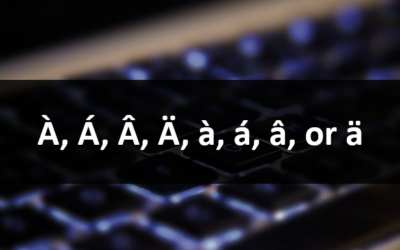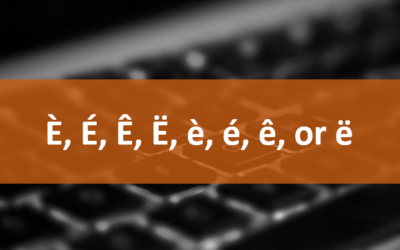Microsoft Word: Power User
Microsoft Word Training Series | Level 3
Course Details
Duration: 2 days (9 am – 4 pm)
Microsoft® Word® Versions: 2013 | 2016 | 2019 | 365 (Windows)
Delivery Methods (Instructor-led): In-person (Live classroom) | Virtual classroom
Course Dates: Check back soon for new dates | View schedule ![]()
Course Fee: $495 CAD per person (Virtual classroom), $545 CAD per person (Bring your own device) or $595 CAD per person + HST (Avantix Learning provides device)*
Custom training: This course may be delivered at your site or ours as an instructor-led or virtual classroom solution. Contact us at info@avantixlearning.ca for more information including savings for custom group training.
Note: Public scheduled courses are delivered as live instructor-led classroom training or virtual classroom training (as indicated). Bring your own device rates apply to live classroom courses.
Course Overview
This course is designed for those users ready to move on to the next level and use some of the most advanced features in Microsoft Word. Students will use Word's powerful fields to enter information automatically and display variable results. Advanced styles, advanced headers and footers and advanced tables of contents will created. Students will insert and manage captions, footnotes, bookmarks, hyperlinks and cross-references in longer documents. Newspaper style columns and advanced mail merges will also be created and PDF (portable document format) files will be converted to Word format. In order to save time and automate Word, macros will be created to eliminate repetitive actions. Throughout this course, the instructor will include numerous tips, tricks and shortcuts.
Prerequisite: Microsoft Word Intermediate / Advanced or Microsoft Word: Styles, Templates and Tables of Contents or equivalent knowledge and skills.
Location and timing: Public scheduled courses are held online in virtual classroom format or in downtown Toronto and run from 9:00 am to 4:00 pm (Eastern Time).
Related training: View all Microsoft Word courses >
INCLUDED IN THIS COURSE
- Comprehensive course manual
- Keyboard shortcuts quick reference
- Sample and exercise files
- Refreshments (for classes conducted in Avantix Learning classrooms)
- Certificate of completion
- Follow-up email support
Course Topics
Automating Word using Fields
- Inserting and manipulating fields using different strategies
- Using the Insert Field dialog
- Showing and hiding field codes
- Setting field properties
- Examining the parts of a field code
- Options for specific fields
- Updating fields in different ways
- Inserting fields in mail merges
- Creating running headers/footers that display headings and subheadings automatically
- Updating fields automatically when printing
- Locking and unlocking fields
Working with Date, Time and Number Fields
- Inserting date and time fields
- Inserting number fields
- Changing the formatting of date, time and number fields using switches
Numbering Paragraphs and Pages Using Fields
- Displaying page numbering using different fields
- Numbering using the SEQ field
- Numbering field codes
Working with Interactive Fields
- Understanding interactive fields
- Inserting document property fields to update throughout a document
- Using Fill-in fields
- Activating interactive fields
- Inserting an Ask field
- Activating fields automatically
Applying Advanced Style Techniques
- Finding and replacing styles
- Using style separators to include snippets in a table of contents
- Adding keyboard shortcuts to styles
- Ensuring users can apply only specified styles
- Displaying the styles and direct formatting applied to a selection
Using Advanced Tables of Contents Techniques
- Generating tables of contents from styles in Microsoft Word
- Viewing tables of contents field codes
- Editing tables of contents field codes to remove numbering for different levels
- Manually marking entries for a table of contents
- Creating multiple tables of contents in the same document
Inserting and Formatting Content Controls
- Understanding content controls
- Identifying the parts of a content control
- Using different types of content controls
- Issues with content controls
- Using content controls in templates
Designing Fillable Forms
- Creating a digital form including text boxes, drop-down lists and check boxes
- Adding a calculated field on a form
- Formatting and protecting a form
- Saving a form as a template
- Completing and saving a form with data
Creating a Custom Tab in the Ribbon
- Adding a new tab to the Ribbon with preferred buttons
- Creating groups
- Recommended buttons
- Copying a custom Ribbon tab to another computer
Inserting Captions, Cross-References, Footnotes and Indexes
- Inserting picture and table captions
- Generating a list of figures and tables
- Inserting and editing footnotes and endnotes
- Adding a cross-reference to text or a paragraph that appears in another location in a document
- Updating cross-references
- Using bookmark fields with cross-references
- Marking text for an index
- Generating an index
Converting PDFs to Word
- Converting PDF (portable document format) files to Word (2013 and later)
- Converting PDFs to Word (2010 and earlier)
- Conversion issues
Creating Newspaper-style Columns
- Creating a newspaper-style column document
- Adding titles across the top of a newspaper-style document
- Adding column breaks and continuous breaks
Tracking Changes
- Turning on the Track Changes feature
- Controlling the display of tracked changes
- Accepting or rejecting changes
- Comparing two revised documents and examining the changes using Legal Blackline
Protecting Documents
- Locking documents so that users can edit specific areas
- Restricting formatting and editing
- Making Microsoft Word documents read only
- Password protecting Word documents
- Removing personal information and other metadata
Automating Tasks with Macros
- Automating frequent tasks using basic macros
- Reviewing Trust Centre settings for security
- Recording a macro using the macro recorder
- Using different strategies to run a macro
- Saving files with macros
Register Now for a public course at our downtown Toronto location at 1 Yonge Street, Suite 1801 (Toronto Star Building), Toronto, Ontario, Canada.
Do you need more information? Contact us!
To request this page in an alternate format, contact our staff.
*Prices subject to change.
Copyright 2024 Avantix® Learning

Custom training
Register now for a public course or contact us at info@avantixlearning.ca for more information about any of our courses or to discuss custom training options (virtual classroom or live classroom).
Related courses
Microsoft Word: Intermediate / Advanced
Microsoft Word: Designing Dynamic Word Documents Using Fields
Microsoft Word: Long Documents Master Class
Microsoft Word: Accessible Word Documents
Microsoft PowerPoint: Intermediate / Advanced
You may like
How to Insert or Type I with an Accent Mark in Word (Í, í, Ì, ì, Î, î, Ï, or ï)
You can insert or type i with an accent mark in Word using built-in tools or keyboard shortcuts (including Alt code shortcuts). The letter i can be inserted with an accent in both upper or lower case. The following are common accented characters that you can insert or type in Word in upper or lower case: grave (Ì or ì), acute (Í or í), circumflex (Î or î) and umlaut (Ï or ï).
How to Insert or Type A with an Accent Mark in Word (À, Á, Â, Ä, à, á, â, or ä)
You can insert or type a with an accent mark in Word using built-in tools or keyboard shortcuts (including Alt code shortcuts). The letter a can be inserted with an accent in both upper or lower case. The following are common accented characters that you can insert or type in Word in upper or lower case: grave (À or à), acute (Á or á), circumflex (Â or â) and umlaut (Ä or ä).
10 Word Shortcuts to Select Text Using a Keyboard
You can use several shortcuts in Word to select text in your documents using only your keyboard. When you select text, it will typically be highlighted in grey. After you select text, you can cut, copy, or delete the selected text or apply character or paragraph formatting.
How to Generate Random Text in Word
If you are creating a Microsoft Word document, template or mockup and you want to create placeholder text, you can generate random text using the built-in RAND function or LOREM function (which generates Latin or Lorem ipsum text).
How to Center Text Vertically in a Word Table (and Fix Common Issues)
You can center or align text vertically in cells in a Word table using commands in the Table Design or Table Tools Design tab in the Ribbon. If the text doesn't seem to align correctly, there are several common issues that may be affecting the alignment including extra blank paragraphs, paragraph spacing and cell margins.
You may also like
How to Insert or Type E with an Accent Mark in PowerPoint (È, É, Ê, Ë, è, é, ê, or ë)
You can insert or type e with an accent mark in PowerPoint using built-in tools or keyboard shortcuts (including Alt code shortcuts). The letter e can be inserted with an accent in both upper or lower case in text boxes or placeholders on slides, the slide master or layouts. The following are common accents in upper or lower case – È, É, Ê, Ë, è, é, ê, or ë.
How to Fade a Picture or Part of a Picture in PowerPoint (Using a Gradient)
You can fade a picture in PowerPoint by drawing a rectangle shape on top of the picture and then filling the rectangle with a gradient from opaque to transparent. This technique is often used to fade an image into the background of a slide. Since the rectangle is placed on top of the image and then text may be placed on top of the rectangle, you may need to reorder the objects.
How to Lock an Image, Shape or Other Object in PowerPoint
You can now lock an image, shape or other object in PowerPoint. Objects can be locked in Normal View or Slide Master View. Only PowerPoint 365 users can lock objects to prevent moving and resizing. This is helpful if you want to select and move other objects on the slide or prevent others from moving or resizing an object. You can lock items using the context menu or the Selection Pane.
Microsoft, the Microsoft logo, Microsoft Office and related Microsoft applications and logos are registered trademarks of Microsoft Corporation in Canada, US and other countries. All other trademarks are the property of the registered owners.
Avantix Learning | 1 Yonge Street, Suite 1801 (Toronto Star Building), Toronto, Ontario, Canada M5E 1W7 | info@avantixlearning.ca








